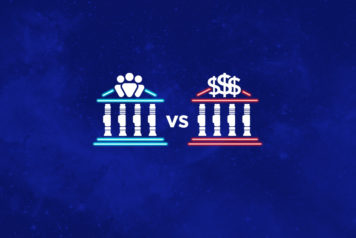Don’t Let Scammers Take the Fun Out of Your Tax Refund
Just like clockwork, tax filing day comes every April 15. For the lucky ones, the work and stress from filing tax returns pay off with a refund from Uncle Sam.
For scammers, this is the perfect time to pounce. Every year, scammers are waiting to steal tax refunds before taxpayers can even receive them. From bogus emails to scare-tactic phone calls, scammers work overtime after April 15 to snatch your personal information and tax return details to scoop up your hard-earned and well-deserved refund.
Here are a few ways scammers are working to illegally steal tax refunds:
Tax Refund Phishing Emails.
If you get an email that says it is from the IRS, but it gives you an outside link asking for personal information – it’s a scam. Delete and mark the sender as spam. In fact, the IRS does not use email to communicate with tax filers, so any contact via email about your refund is a red-flag scam warning.
Tax Refund Phone Calls.
Often, scammers will call people to discuss issues with their refund, but they won’t have any personal information or will need you to verify all your personal information. Don’t give out any personal information and hang up. The IRS will first communicate with tax filers through the mail. Here’s another tip to check the validity of the call: If you can’t verify the phone number through the IRS website, it isn’t legitimate.
Identity and Tax Return Theft.
Much worse than scammers contacting you directly, some are filing false tax returns under someone else’s name to lay claim to their entire return. Many times, victims do not know they have been scammed until they file their legitimate tax return and are notified their returns have already been filed. Use firewall protection and antivirus software to protect your computer from external hacking to avoid these scammers. In addition, never give your personal information out over the phone, email, or text.
Unscrupulous Tax Return Preparers.
If you have your taxes prepared by an outside, independent tax professional, make sure he or she provides honest, high-quality service. Even under the advice of so-called tax professionals, never falsify income, deductions, or other tax information on your tax returns. And if anyone promises a tax refund that sounds too good to be true or inflated from what you know you should receive, they are most likely trying to get a refund they will pocket themselves, leaving you high and dry. If this happens, you could be both missing a refund check and in trouble with the IRS too for back taxes, interest. and penalties if you misrepresented your tax information when filing.
Watch for these tax preparers to pop up in storefronts during tax-filing season (and then disappear as quickly after April 15). Often they prey on a communities’ trust by speaking at community events, churches, and other places known for trustworthy speakers. Be wary of tax preparers that make taxes and refunds sound too good to be true. (They probably are!)
This article is for educational purposes only. WeStreet Credit Union makes no representations as to the accuracy, completeness, or specific suitability of any information presented. Information provided should not be relied on or interpreted as legal, tax or financial advice. Nor does the information directly relate to our products and/or services terms and conditions.


